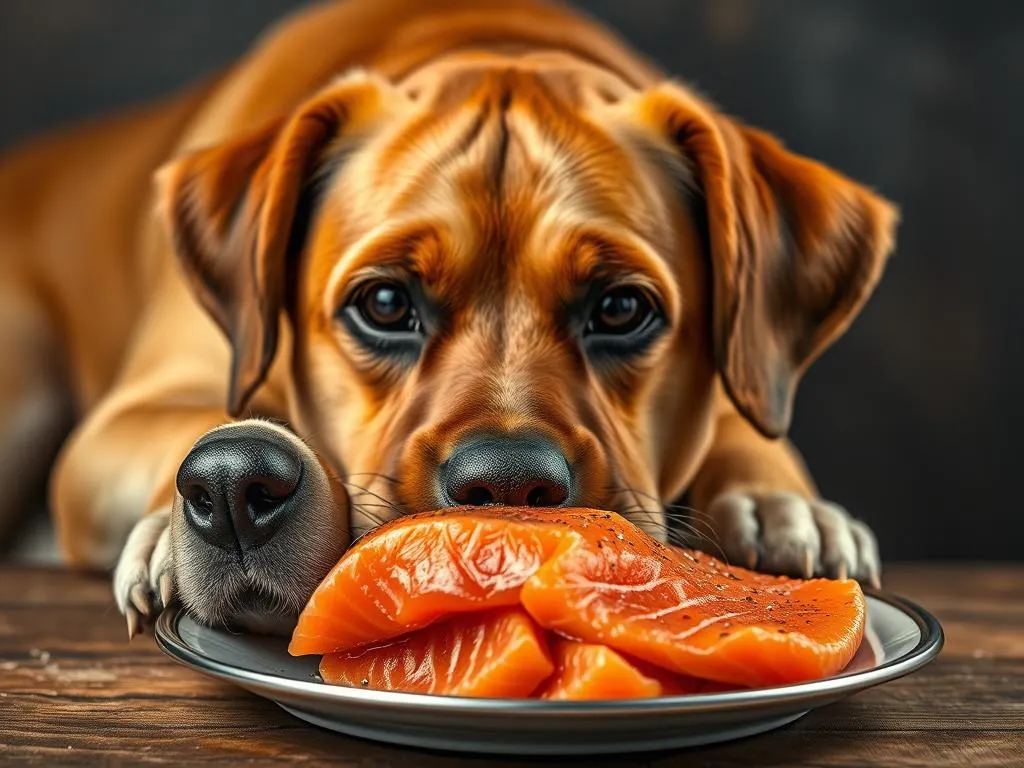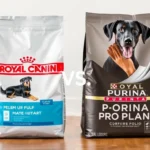
Introduction
Understanding dog nutrition is crucial for ensuring our canine companions lead healthy, happy lives. Just like humans, dogs require a balanced diet to thrive, supporting their growth, energy levels, and overall well-being. One topic that often arises among dog owners is whether dogs can eat certain human foods, particularly fish like smoked salmon. This article will delve into the question, can dogs eat smoked salmon, exploring its nutritional benefits, potential risks, and how it fits into a dog’s diet. We’ll provide a comprehensive overview, ensuring you have all the information you need to make informed choices for your furry friend.
Understanding Dog Nutrition
Essential Nutrients for Dogs
A dog’s diet must include a variety of essential nutrients to promote health and vitality. These nutrients can be categorized as follows:
- Proteins: The building blocks of a dog’s body, proteins are vital for growth, tissue repair, and overall health. High-quality protein sources include meat, fish, and eggs.
- Fats: Healthy fats provide energy and support skin and coat health. Omega-3 and omega-6 fatty acids are particularly important.
- Carbohydrates: While dogs can thrive on low-carb diets, carbohydrates provide a quick source of energy. Sources include grains and vegetables.
- Vitamins and Minerals: These micronutrients play critical roles in maintaining a dog’s immune system, bone health, and metabolic functions.
A balanced diet that encompasses these nutrients is essential for ensuring that dogs meet their specific health needs.
Common Nutritional Needs by Dog Age and Breed
Nutritional requirements can vary significantly based on a dog’s age, breed, and size:
- Puppies: Require a diet rich in calories and nutrients to support their rapid growth and development. High-quality puppy food often contains more protein and fat than adult formulas.
- Adult Dogs: Typically need a balanced diet that maintains their health without promoting obesity. Caloric intake should be aligned with their activity levels.
- Senior Dogs: May require specialized diets that are lower in calories but higher in fiber to support digestion and maintain a healthy weight.
Additionally, specific breeds may have unique dietary needs. For instance, large breeds may benefit from diets that support joint health, while smaller breeds may require more calorie-dense foods.
Smoked Salmon and Its Nutritional Profile
What is Smoked Salmon?
Smoked salmon is a popular delicacy made from salmon that has been cured and smoked. There are two primary types: cold-smoked and hot-smoked salmon. Cold-smoking involves curing the fish at lower temperatures, resulting in a silky texture, while hot-smoking cooks the fish at higher temperatures, giving it a firmer texture. Both types are rich in flavor and nutrition.
Nutritionally, smoked salmon is an excellent source of:
- Proteins: High-quality protein essential for muscle development.
- Omega-3 Fatty Acids: Known for their anti-inflammatory properties and benefits for heart health.
- Vitamins: Rich in B vitamins, particularly B12, which supports energy metabolism.
- Minerals: Contains important minerals like selenium and potassium.
Health Benefits of Salmon for Dogs
Including salmon in a dog’s diet can offer several health benefits:
- Skin Health: Omega-3 fatty acids can promote healthy skin and alleviate itching or irritation.
- Coat Shine: Regular consumption of salmon can enhance coat appearance, making it shinier and healthier.
- Joint Health: Omega-3s may contribute to joint health, particularly in older dogs or those with arthritis.
- Heart Health: The fatty acids found in salmon can help support cardiovascular health.
These benefits make salmon a popular ingredient in many commercial dog foods.
Can Dogs Eat Smoked Salmon?
Safety Considerations
While many benefits exist, it’s essential to consider the safety of feeding smoked salmon to dogs:
- Sodium Content: Smoked salmon often contains high levels of sodium due to the curing process. Excessive sodium can lead to health issues, including hypertension and kidney problems in dogs.
- Bones: Smoked salmon may contain small bones that pose a choking hazard. Always ensure that the fish is deboned and safe for consumption.
- Allergies: Some dogs may have allergies to fish. Always introduce any new food slowly and monitor for any adverse reactions.
Recommended Serving Sizes
If you decide to feed your dog smoked salmon, moderation is key. Here are some guidelines:
- Serving Size: Small dogs can have a few small pieces (about a tablespoon), while larger dogs might enjoy a couple of ounces.
- Frequency: Smoked salmon should be an occasional treat rather than a regular part of the diet. Consider offering it once a week or biweekly.
Always consult your veterinarian before introducing new foods to your dog’s diet.
Alternatives to Smoked Salmon
Other Fish Options for Dogs
If you’re concerned about the safety of smoked salmon, there are several safe alternatives to consider:
- Cooked Salmon: Fresh, cooked salmon (without seasoning) is a great alternative. It contains many of the same beneficial nutrients without the risks associated with smoking.
- Sardines: Canned sardines in water (not oil or sauce) can be a nutritious option rich in omega-3s and protein.
- Mackerel: Another oily fish that provides similar benefits, mackerel can also be offered cooked and deboned.
Always ensure that any fish is prepared without harmful additives or seasonings.
Homemade Salmon Treat Recipes
Creating homemade salmon treats is an excellent way to provide your dog with nutritious snacks. Here are two simple recipes:
Salmon and Sweet Potato Bites
Ingredients:
– 1 can of salmon (drained)
– 1 cup of cooked sweet potato (mashed)
– 1 egg
– 1 ½ cups of whole wheat flour (or a gluten-free alternative)
Instructions:
1. Preheat the oven to 350°F (175°C).
2. In a mixing bowl, combine salmon, sweet potato, and egg. Mix until well combined.
3. Gradually add flour until a dough forms.
4. Roll out the dough and cut into shapes.
5. Place on a baking sheet and bake for 20-25 minutes or until golden brown.
Salmon and Carrot Dog Treats
Ingredients:
– 1 cup of cooked salmon (or canned, drained)
– 1 cup of grated carrots
– 2 cups of oat flour
– 1 egg
Instructions:
1. Preheat the oven to 350°F (175°C).
2. In a bowl, mix salmon, carrots, and egg until combined.
3. Gradually add oat flour until a dough forms.
4. Roll out and cut into desired shapes.
5. Bake for 20-30 minutes until firm.
These treats can be stored in an airtight container for up to a week.
Conclusion
In conclusion, while the question of can dogs eat smoked salmon has an affirmative answer, it is essential to consider the potential risks and nutritional implications. Smoked salmon can offer health benefits due to its rich omega-3 fatty acid content, but it should be given in moderation and with caution regarding sodium levels and potential bones.
Always prioritize a balanced diet tailored to your dog’s specific needs, and consult with your veterinarian for personalized advice. By making informed choices and occasionally introducing nutritious treats like smoked salmon or its alternatives, you can enhance your dog’s diet and overall health.
FAQ
Is smoked salmon toxic to dogs?
Smoked salmon is not toxic to dogs, but its high sodium content and potential for bones make it a less-than-ideal food choice. Moderation and careful preparation are key.
How often can I give my dog smoked salmon?
Smoked salmon should be given as an occasional treat, ideally no more than once a week, depending on your dog’s size and dietary health.
What should I do if my dog eats too much smoked salmon?
If your dog consumes a large amount of smoked salmon, monitor for any signs of distress, such as vomiting or lethargy. Contact your veterinarian if you have concerns or if symptoms arise.
Are there any other human foods dogs can safely eat?
Yes! Some safe human foods for dogs include carrots, blueberries, plain cooked chicken, and pumpkin. Always ensure that these foods are prepared without harmful additives.
By understanding dog nutrition and the implications of feeding your dog smoked salmon, you can make informed dietary choices that promote a healthy, happy life for your furry friend.









